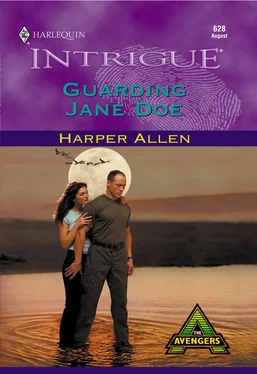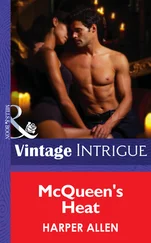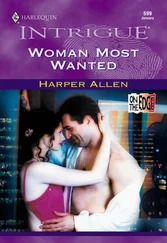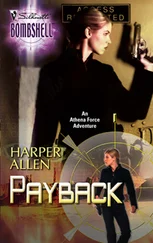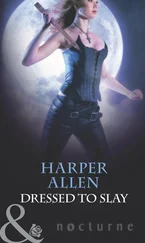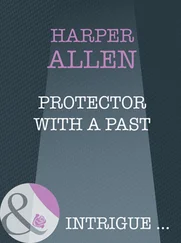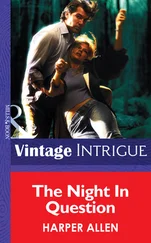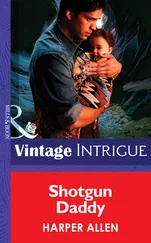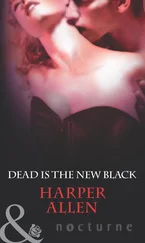She was inclined to talk, and for fifteen minutes expounded on everything from her grandchildren to the selection of cookies she planned to bake over the next few weeks in preparation for Thanksgiving. Quinn retained the recipe for strawberry powder jelly balls for as long as it took him to gently disengage himself from the garrulous old lady and to close and bolt the door behind her. Then he wiped his mind clean of all extraneous details. He looked down at the envelope in his hand, the mask of affability that he’d worn for his neighbor gone, his jaw rigid.
It was postmarked Belgium, and it had been mailed a week ago. He already knew what it contained, since the handwriting wasn’t the one he’d grown familiar with over the last seven years. His face expressionless, he ripped it open and let it fall to the floor unheeded as he held up the single sheet of lined paper it had enclosed.
“My dear Mr. McGuire…” it began.
Despite himself a ghost of a smile passed across his features. She’d seen him naked a score of times and still she’d never been able to bring herself to use his first name. He read on, the smile fading.
You know what this is, of course. The doctors tell me that what time I have left should be measured in hours, not days. I have said my goodbyes to everyone here so that I can prepare myself in peace for what is to come, and now this last goodbye is to you. But the real reason I am writing you is this: you owe me, Mr. McGuire—and it is high time you paid up.
Startled, Quinn stopped and reread the last line. The writing was scrawled and uneven but it was still recognizable, and he hadn’t made a mistake. What he was holding in his hand was, more or less, an unpaid bill. He continued reading.
When I nursed you back to health all those years ago I expected no repayment, but you insisted that you were in my debt. Since then you have reminded me many times that I only have to name my price and you will gladly pay it. Mr. McGuire, my price is this—I want you to take on an assignment for me. I want you to use those talents and skills that you have employed in wars all over the world, but this time I want you to use them in the role of a protector. You will know when the right case presents itself, and—
Whatever she had intended to add had never been written. Except for a small splatter of ink on the page, the letter ended there. Quinn squeezed his eyes shut for a second, as if he was riding out a wave of pain. When he opened them he turned the paper over in his hand and saw that someone had added a postscript.
Mr. McGuire, Sister Bertille was unable to complete this letter to you, but before she slipped into unconsciousness for the last time she asked me to make sure that I sent it to ‘her Quinn,’ as she always called you. I know you held a special place in her heart, and we will all continue with our prayers for your safety and your soul, as we have done since Sister Bertille came to live with us.
It was signed by the Mother Superior of the convent in Belgium where she’d retreated when the cancer had started to spread, he noted numbly. Apparently somewhere in that tiny country was a group of nuns who knew him by his first name—she’d been pretty damn tricky with that formal “Mr. McGuire” business in her letters, Quinn thought—and who now had taken up the burden of saving his soul that Sister Bertille had obviously carried all these years. A muscle in his jaw jumped.
“So who the hell asked you, Sister?” he muttered. His fist tightened around the flimsy piece of paper, crumpling it. “And what kind of an underhanded scam is this for a nun to be running—calling in your markers and then getting up from the game before a man can negotiate the price, dammit?”
She’d been small, wiry and middle-aged when he’d first met her, with thick-lensed glasses held together by a piece of wire that he’d recognized as the discarded firing pin of some light semi-automatic pistol. She’d worn the traditional nun’s black habit of scratchy coarse material, but in that hellhole of a jungle clinic, she had always seemed cool and unruffled. She’d saved his life.
And now she was dead. Quinn rubbed his arm wearily across his eyes and then walked slowly over to the kitchen table. Unclenching his fist, he tried to smooth out the creases that he’d created in the letter. He’d only known her for a few weeks, but she hadn’t let a month go by since then without writing to him. Sometimes he would come back from an assignment and find four or five envelopes waiting for him, and once in a while he’d scrawled a postcard back, just to let her know he was still in the land of the living.
Jack Tanner. Paddy Doyle. The Haskins kid—the one they’d nicknamed Hemingway, because he’d always been writing in his journal. And now Sister Bertille, who in her own way had been as much a soldier as any of them: going wherever she was sent and fighting for the cause she believed in as implacably as they had. He glanced down at the letter once more, his gaze bleak.
“When mercenaries die, Sister, their souls become wild geese. That’s how the legend goes, anyway,” he whispered softly. “And those of us who are left behind go out and get drunk, and sometimes we persuade ourselves that we hear our friends high up in the night sky, flying through the darkness toward home. I owe you that much, Sister. I owe you a drink or two to your memory, and I’ll wish you safe journey to wherever it is that you believe we go when we die. But what you’re asking of me is impossible. This is the only way of life I know.”
Drunk sounded good, Quinn thought. To hell with the phone call he’d been planning on making earlier; there would always be another job. He’d go out to the nearest bar, stay just sober enough to walk out under his own power at last call, and then he’d come back here and finish off the bottle of Bushmills he kept at the back of the cupboard. Sometime during the evening he’d try to call Terry Sullivan and let him know about Sister Bertille, and if Terry hadn’t grown too respectable to be seen with an ex-comrade, he might even join him in the wake of a woman they’d both known and respected.
A protector, for God’s sake. She’d always told him he was a better man than he knew, he thought in irritation, staring at the still-crumpled letter. It seemed that right up to the end she’d been too damned stubborn to discard her naive belief in him.
He turned away and was halfway to the door when his phone rang. Grabbing it up impatiently, the caller’s first words froze him in his tracks.
“Mr. McGuire? Quinn McGuire? I was given your number by someone who knows you.” The soft voice quavered. Then it steadied. “I—I need a bodyguard. I want to hire you to protect me.”
The bar was smoky, the music was loud and apparently Quinn McGuire wasn’t going to show. He was over an hour late already. Avoiding surreptitiously interested glances from the surrounding tables, Jane took a miniscule sip of the orange juice that she’d been nursing since she arrived. The ice-cubes in it had long since melted, but even the watered-down citrus tang did nothing to relieve the tight parched feeling in her throat. What was she doing here anyway? How had it happened that her life had spun so far out of control that she’d been reduced to waiting desperately in this raucous Irish pub for a man she’d never met?
In marked contrast to this unlikely meeting-place, earlier today the reception area of Sullivan Security and Investigations had given the impression of a professional and successfully run organization. She should have realized right from the start that the firm was well out of her price range, she told herself now with a brief flicker of embarrassment. The Irish trio on the small stage at the far end of the room launched into a new song, and all around her enthusiastic voices took up the refrain. Her temples throbbed dully, and she set her drink down on the sticky tabletop. The female operative she’d finally spoken with had been diplomatic enough not to mention an actual dollar amount, but her keen glance obviously hadn’t missed the fact that Jane’s outfit was working-girl attire, and that her jewelry—a pair of gold-toned studs in her ears and a leather-strapped wristwatch—was department store at best.
Читать дальше
